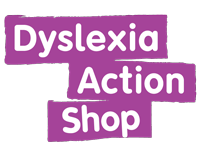This website uses cookies to ensure you get the best experience on our website. About consent.
AAB- ACADEMIC ACHIEVEMENT BATTERY (2014) - Comprehensive Form Print Kit, Product Range
Required qualifications
Dyslexia Action PGCert /PGDipor Assessment Qualification at Level 7 e.g. CPT3A and Sector Specific BA (Hons) / B.Ed Hons or Bsc subject
or BA (Hons) / B.Ed Hons or Bsc subject and Professional Body Membership e.g. DA Guild MDG
or BA (Hons) / B.Ed Hons or Bsc subject and PGCert /PGDip/MA/MEd/MSc in SEN (including psychological assessment) SpLD APC or equivalent
Purpose: Assess seven areas of achievement throughout the life span
Age range: 4 to 85 years
Admin: Individual
Admin time: Comprehensive Form: 90 minutes to administer; 15 minutes to score. Screening Form: 30-45 minutes to administer; 5-10 minutes to score
SKU
AAB-G
The AAB is a complete achievement assessment, offering both a comprehensive battery and a screening version for use with individuals throughout the life span.
Features and benefits
- Developed using academic standards set by the National Council of Teachers of Mathematics, the National Council of Teachers of English, Common Core, and Reading First.
- Administration and scoring are straightforward and easy—and both comprehensive and screening versions have a Fast Guide to help you get started.
- Unlike similar measures, the AAB requires no certification or intensive preparation—simply open your AAB kit and review the materials, and you will be ready to begin assessment.
- Provides age- and grade-based (fall and spring) norms.
- Scoring is available through PARiConnect; stimuli are available digitally.
Comprehensive Form
- Can be administered in about 90 minutes and scored in 15 minutes.
- The Academic Achievement Battery Composite, a total score, provides an overview of the individual’s overall performance on the various aspects of achievement measured by the AAB.
- A skills analysis enables you to investigate the individual’s strengths and weaknesses and offers a wealth of data with which to make interpretations and recommendations.
- Provides composite-to-composite and subtest-to-subtest discrepancy scores and reliable change scores.
Technical information
- Reliability coefficients for the subtests range from .77 to .97 and from .88 to .98 for the composite scores across the age- and grade-based normative samples.
- AAB subtest and composite scores were found to be highly correlated with similar constructs on the WJ® III, KTEA™ -II, WRAT4, and WIAT® -III.
- The manual includes evidence supporting the ability of the AAB to differentiate performance in individuals with various learning disabilities, intellectual disorder, ADHD, and speech/language impairment.
- Includes reliable change scores and ability–achievement discrepencies with the Reynolds Intellectual Assessment Scales™, Second Edition (RIAS™2). A combination kit is also available!
| Composite Score | Subtest | Age Level | How does it work? |
| Basic Reading | Reading Foundation Skills | Ages 3/4 to 8 years | Requires the examinee to demonstrate phonological awareness through tasks focused on rhyming, sound matching, blending, segmenting, deleting and substitution. |
| Letter / Word Reading | Letter Reading: Ages 3/4 to 8 years Word Reading: 4 to 85 years |
Letter Reading requires the examinee to identify lowercase and uppercase letters. Word Reading requires the examinee to pronounce words of increasing difficulty. | |
| Reading Fluency | Ages 4 to 85 years | Requires the examinee to demonstrate oral reading fluency during a timed reading task. | |
| Reading Comprehension | Words and Sentences |
Words: Ages 3/4 to 8 years Sentences: Ages 4 to 85 years |
Requires the examinee to point to the written word or sentence that matches a visual stimulus. |
| Passages | 5 years and older | Requires the examinee to read passages of increasing difficulty. | |
| Listening Comprehension | Words and Sentences | Ages 4 to 85 years | Requires the examinee to select the visual stimulus that matches a spoken word or sentence. |
| Passages | Ages 4 to 85 years | Requires the examinee to respond orally to literal and inferential questions after hearing a passage read aloud. | |
| Expressive Communication | Oral Fluency | Ages 4 to 85 years | Requires the examinee to list as many items as possible in 60 seconds when provided a category. |
| Oral Expression | Ages 4 to 85 years | Requires the examinee to demonstrate his or her grasp of pragmatics, grammar and expressive vocabulary. | |
| Oral Production | Ages 4 to 85 years | Requires the examinee to describe an illustrated scene; measures speech output and fluency. | |
| Written Expression | Pre-Writing Skills | Ages 3/4 to 8 years | Requires the examinee to trace lines and figures of increasing difficulty. |
| Spelling |
Letter Writing: Ages 3/4 to 8 years Word Writing: Ages 4 to 85 years |
Letter Writing requires the examinee to write lowercase and uppercase letters. Words Writing requires the examinee to correctly spell words of increasing difficulty. | |
| Written Composition | 8 years and older |
Requires the examinee to spontaneously write; evaluates theme, organisation, voice, word choice, sentence fluency, presentation and conventions. | |
| Mathematical Calculation | Mathematical Calculation |
Part 1: Ages 3/4 to 8 years Part 2: Ages 4 to 85 years |
Part 1 requires the examinee to provide oral and written responses to maths problems. Part 2 requires the examinee to complete increasingly difficult maths calculations in a timed task. |
| Mathematical Reasoning | Mathematical Reasoning | Ages 4 to 85 years | Requires the examinee to apply mathematical reasoning to real-life problems through oral response. |
Write Your Own Review


